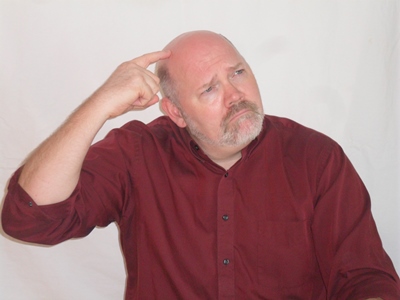We humans are severely limited in our intelligence, wisdom, strength, endurance and motivations. We are selfish creatures, shortsighted, impatient, prone to take the path of least resistance, and sorely tempted by the delusion of easy attainment. We are susceptible to flattery, especially self-flattery, and have an almost limitless capacity for self-justification. Our humanity is further curtailed by powerful gender inclinations so that half of us are puzzled by the other half at the deepest levels of our physiology, emotional make-up, and intellectual strengths and weaknesses. Over time, we have divided into cultures with radically different worldviews, communication systems, value systems and practical processes for life… and we don’t easily trust or understand those whose cultural essence is radically different from our own. Those do easily trust usually do so under the delusion that they do understand. Every child is born a barbarian in need of being acculturated to his or her society, responding to basic rewards and punishments within the limited physical, emotional, intellectual and psychological framework with which each is born. With people you get more of what you reward and less of what you punish… but only within natural limits.
Why is It So Hard to Really Help People? Part 1: Human Nature
We are always losing the war on drugs, stagnating in the war on poverty, failing to end bullying, never quite able to defeat racism and prejudice, unable to achieve lasting peace or to end war… etc, etc, etc.
Know why? I think I do.
It is hard to help people because people have complex natures that demand a significant amount of wisdom to navigate effectively. We joke, “No good deed goes unpunished,” because the unintended consequences of even the most noble action are many when those actions fail to account for human nature… and the bulk of human actions are never intended to be good deeds in the first place.
In economics, the best predictors are those who understand the way people make decisions and can, thus, successfully anticipate how diverse people will respond in multiple stages to the incentives present in a situation. People always act like people, just as dogs will always act like dogs and cats like cats. Creatures have natures that bend, but don’t break. We can be trained or perverted but only within the limits of our natures. A person can change, but people do not.
Therefore, a wise person operates within the possible paradigms of human nature without delusions of reinventing humanity in the here and now.
Taking this all into account, one can easily understand why our most “noble” designs prove flawed to the point of being ruinous to others—We fail to properly anticipate what others will do when we do what we do, and what still others will do when those first wave of souls do what they do in response to what we do… etc.
We must never be satisfied with our personal convictions that what we are doing to help others is actually helping others. We must be diligent in following out the real life ramifications of our “aid” on the practical lives of others. This is a difficult and complicated endeavor… hence why most are content with merely “meaning well.”
In Black Beauty, when a friend defends his stable boy when he almost kills Black Beauty by saying that it was only ignorance, not malice, the caregiver exclaims, “Only ignorance! only ignorance! how can you talk about only ignorance? Don’t you know that it is the worst thing in the world, next to wickedness? — and which does the most mischief heaven only knows. If people can say, `Oh! I did not know, I did not mean any harm,’ they think it is all right.” (Anna Sewell)
Next time, let’s begin applying this notion to a handful of central issues involved in the human desire to help others.





